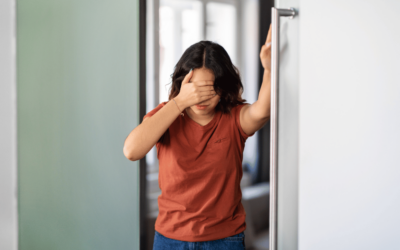Menopause is a natural process that every woman goes through, usually in their late 40s or early 50s. Along with the many changes that occur during this time, some women experience dry eye symptoms. In fact, studies have shown that women are more likely to experience dry eye than men, and hormonal changes during menopause may contribute to this. In this blog post, we’ll share some tips for managing dry eye during menopause to help you get relief fast.
What causes dry eye during menopause?
Dry eye occurs when your eyes don’t produce enough tears, or the tears evaporate too quickly. Hormonal changes during menopause can decrease tear production, which can lead to dry, itchy, and uncomfortable eyes. Additionally, other factors such as certain medications, autoimmune diseases, and environmental factors can also contribute to dry eye.
Strategies for managing dry eye
Fortunately, there are several ways to manage dry eye symptoms during menopause:
- Use artificial tears: Over-the-counter artificial tears can provide temporary relief from dry eye symptoms. It’s important to choose a preservative-free brand to avoid irritation.
- Avoid environmental triggers: Environmental factors such as dry air, wind, and air conditioning can exacerbate dry eye symptoms. Try to avoid or limit exposure to these triggers when possible.
- Blink regularly: Blinking helps distribute tears evenly over the surface of the eye. Make a conscious effort to blink regularly, especially when using a computer or reading.
- Use a humidifier: Adding moisture to the air can help alleviate dry eye symptoms. Use a humidifier in your home or office to increase the humidity level.
- Take breaks: If you spend a lot of time looking at a computer or digital device, take regular breaks to rest your eyes. Follow the 20-20-20 rule: every 20 minutes, take a 20-second break and look at something 20 feet away.
- Consider hormone therapy: Hormone therapy may help alleviate dry eye symptoms in women experiencing menopause. Talk to your healthcare provider to determine if this is the right option for you.
Professional treatments for dry eye
If home remedies and lifestyle changes aren’t enough to alleviate your dry eye symptoms, Omaha Primary EyeCare in Elkhorn offers several professional treatments, including:
- LipiFlow®: LipiFlow® is a non-invasive treatment that uses thermal pulsation to heat and remove blockages in the meibomian glands, which are responsible for producing the oily layer of tears. By improving the flow of oil in the tears, LipiFlow® can improve tear quality and alleviate dry eye symptoms.
- OptiLight: OptiLight is a handheld device that uses light therapy to stimulate the meibomian glands and improve the flow of oil in the tears. This treatment is painless and non-invasive and can be done in just a few minutes.
Managing dry eye during menopause is possible with the right combination of lifestyle changes and professional treatment. If you’re experiencing dry eye symptoms, contact our office to schedule an appointment in Elkhorn. Our experienced eye care specialists can help you find the relief you need to maintain your eye health and comfort during menopause.




